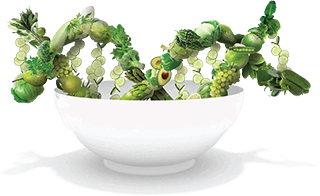Welcome to week two of this four part series on nutrition and immunity. This week we’re diving into the trace mineral zinc.
Zinc is essential, which means we can’t produce or store it so it has to be consumed regularly in sufficient amounts. It naturally occurs in some foods, is added to others, and is available as a dietary supplement. It is required to activate immune function reactions in our bodies so our immune system can do its job.
Zinc’s role has already been established in decreasing the function and activity of previous coronaviruses. The common cold is a type of coronavirus. You hear the term ‘novel’ coronavirus used because COVID-19 is a ‘new’ coronavirus. Zinc has been incorporated in treatment trials for COVID-19 with some success.
Aside from immune function, zinc is involved in skin, cell and vision health, supports normal growth and development during pregnancy, childhood and adolescence and is required for taste, appetite and smell. Studies have shown that immune system function can suffer more in individuals when they’re not eating enough zinc-rich foods (especially the elderly). However, making the necessary diet changes can help reverse the problem within just a few weeks.
Where can we get it? Good food sources of zinc include beans, nuts, asparagus, spinach, mushrooms, cocoa (yes!), seafood (especially oysters, crab and shrimp), red meat and poultry. If you limit animal products, you’ll need a few more servings per day to ensure you’re meeting your requirements because phytates (found in whole grain breads, cereal and legumes) bind to zinc and make it less available for our bodies to use.
Are zinc supplements dangerous? In large amounts, yes, they’re toxic. Excessive zinc (defined as doses over 40 mg per day over an extended period of time) can cause anemia, compete with copper to cause a copper deficiency and can damage the nervous system. Supplement sources are usually found in capsule, tablet or lozenge form commonly marketed as part of cold remedies. Watch out for nasal sprays containing zinc, however, as there were studies that found those who used nasal zinc suffered a permanent loss of smell.
So, the best way to get zinc is to include good daily food sources, a few more if you limit animal products and stick to supplementation around 5-15 mg daily. Save higher supplementation doses (not to exceed 40 mg per day over extended periods) for if you start to feel ill.
